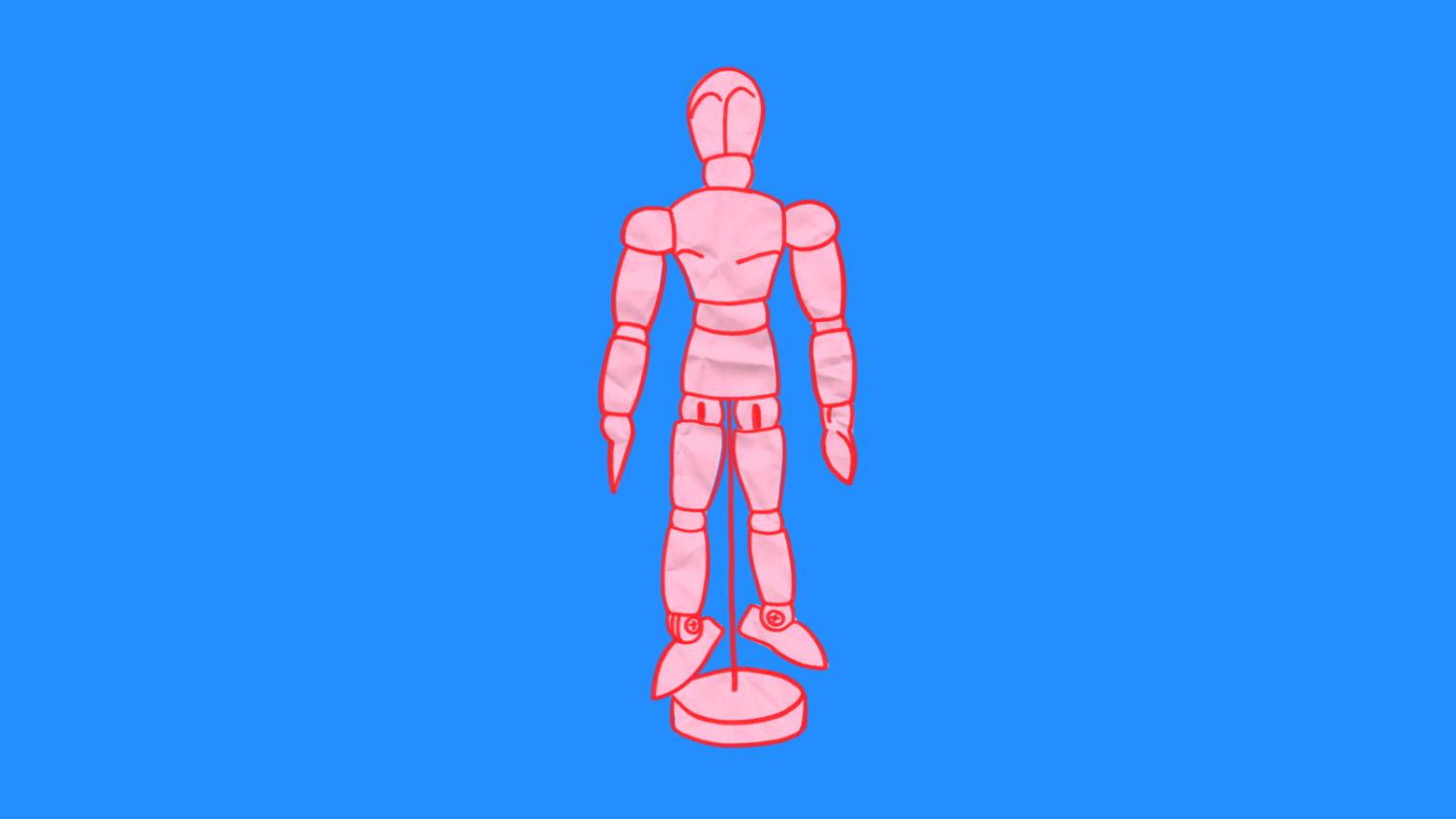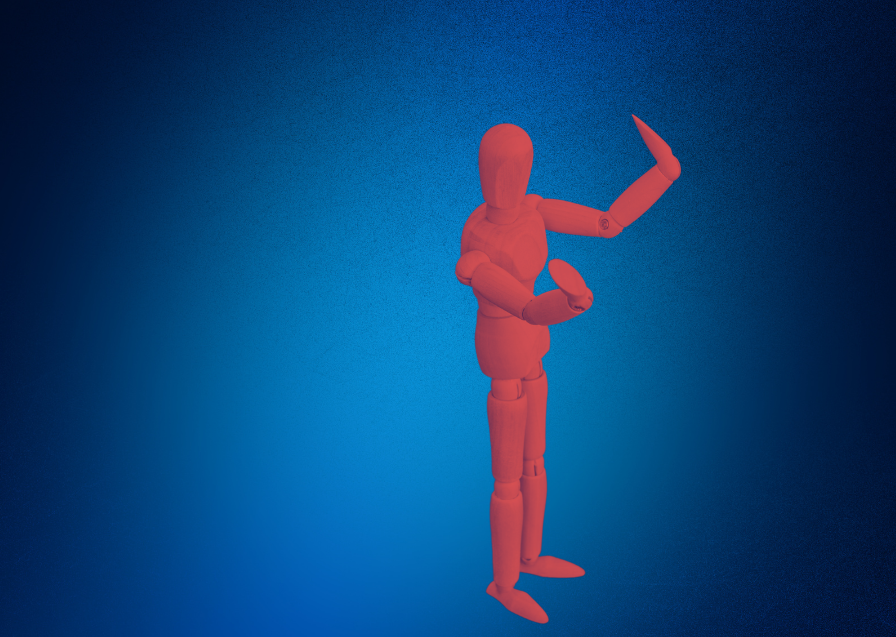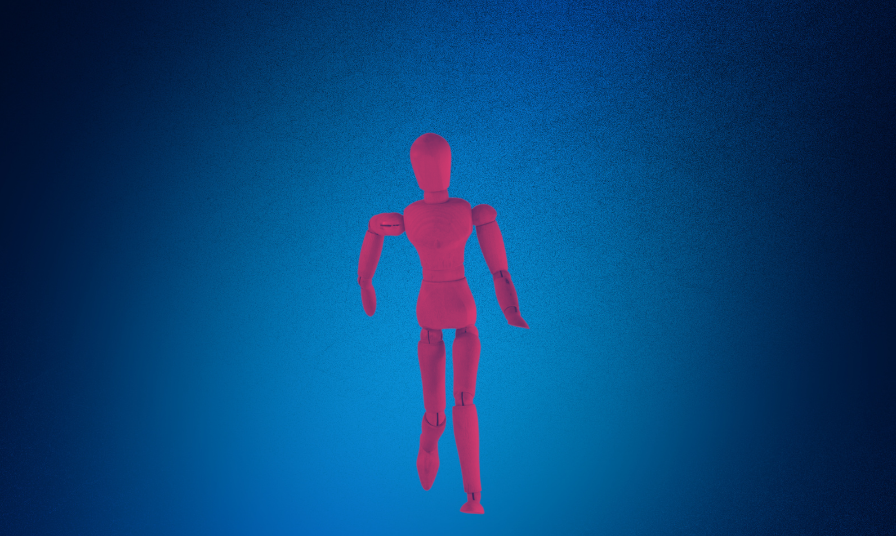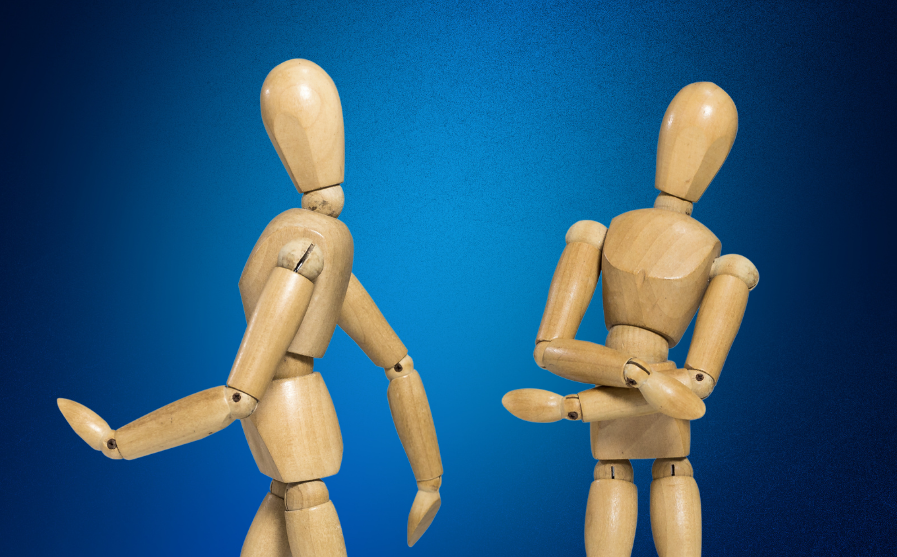5 Healthy Habits for a Positive Body Image


The pandemic, and subsequent quarantine, has upended normalcy. It’s made a lot of us do a lot of things we’d never have imagined. Things like bake bread or do push-ups in the living room. Or, gasp, just sit around and think. A lot.

Although that time for thinking can do a lot of good (Creativity! Self-reflection!), it can also bring up some emotional junk that’s gotten stuck inside our brains. And for non-frontline workers living that WFH life, there’s not much place to hide.
You might find that your emotional junk centers on how you feel about your body.
Right now, you’re probably steps from the pantry. Maybe you’ve settled into a nearly year-long routine of a couple drinks to end the day. Maybe you still haven’t figured out an at-home workout routine.
The result? Your body looks different than it used to. And you find yourself, every so often, spiraling the f*ck out about it.
Let me introduce you to the concept of body image.
Body image is not the objective shape and size of your body; it’s your subjective interpretation of it.
Your body image can be positive or negative depending on what you think your body looks like and how you feel about it.
Looking at you, guys who mentally berate yourselves every time you catch a glimpse of flesh in the bathroom mirror.
These kinds of insecurities are often sneakily embedded into other thoughts and actions. From skipping a trend you’re sure highlights a part of your body you’d rather hide, to skipping a meal when you miss a workout.
Your negative patterns might not be new, but ho-boy can you see them now. That’s what all those blank spaces of time between Zoom meetings will do to ya.
It can certainly feel uncomfortable to come face-to-face with unkind body image thoughts—especially ones you maybe didn’t notice when you were hitting the gym every day, or busy with a full social calendar.
But consider this pandemic the perfect time to meet those body image struggles where they’re at, and learn to break thoughts and patterns that make you miserable.
I talked to Matt Brannagan, a teacher, coach, and director at the Hoffman Institute in California about how to cultivate a healthy, positive body image.
Celebs like Bieber and Katy Perry have raved about Hoffman’s week-long retreats, focused on spiritual and emotional development (aka, get ready for an intense experience), a process which has since moved virtual during the pandemic.
Read on for five ways you can work on developing a healthy body image:

1. Your inner voice is talking to you about your body image. Listen to it.
Brannagan has seen an uptick in men attending Hoffman during Covid—many of whom are concerned with their sense of physical well-being.
“The slowness [of life] has accentuated the internal voice about their own self-worth, their figure or physique,” says Brannagan. “Especially people who had kept themselves so busy that they could ignore that voice before.”
Instead of engaging with the voice, it can seem easier just to shut it out—with work, with food, with alcohol.
How you feel about your body has a lot to do with that inner voice. If it sounds like a harsh critic, it’s understandable that you may want to ignore it!
But when has ignoring anything helped a problem?
Bottom line? Before you can start thinking kind thoughts about your body, you have to first acknowledge the unkind thoughts that are there.

2. Start a daily check-in.
Compassion and self-care are two of the most important ways you can develop a healthy body image.
Here’s an experiment to try: start listening to your inner voice without necessarily believing what it’s saying.
After all, you can’t actually control your thoughts. Just because you think something doesn’t mean that it’s true. Yes, even when it comes from your own brain!
Tl;dr: our inner voice may be feeding us some straight-up lies and it’s time to expose ‘em.
The work starts with talking to yourself.
Yep. Talk to yourself. In the morning, ask yourself where you’re at. At the Hoffman Institute, teachers like Brannagan break this line of questioning into four “selves”: the emotional, intellectual, body, and spiritual.
Checking in with yourself starts with a few simple questions. Use the four selves (‘quadrinity’ they call it at Hoffman) as a guideline:
- What emotions am I feeling? (the emotional self)
- What thoughts am I having? (the intellectual self)
- What sensations do I feel in my body? (the body self)
- What do I feel connected to? (the spiritual self)
You can think through these questions, or you can write out the answers.
And BTW, if it feels like, “Sooo…am I doing this right?”, the answer is yes!
This process can feel ‘woo woo’ to anyone unaccustomed to slowing down and getting comfortable with their thoughts and feelings, but there’s no “wrong” way to do it.
Still feel, well, weird about it? Try tuning into Hoffman’s daily Instagram Live check-in to be guided through the practice.

3.Pay attention to your body instead of dismissing it.
“For most men, the body is considered more of a vessel,” says Brannagan. “Maybe you’re somewhat aware of its needs but…don’t really listen to it. It follows these old patterns of machismo: are you injured? If not, suck it up. But if we are ignoring our body, we are quieting the other parts of ourselves.”
Appreciating what your body can do right now sets a strong foundation for a truly healthy body image.
Instead of thinking only about that stomach pouch or your calves that refuse to bulk up, you’ll start thinking about how your core allows you to sit, stand, and move. How those calves, tiny as they may be, get you up the stairs to check on your sleeping baby.
Not to get all self-help, Oprah-y on you, but hot damn, your stomach pouch-having, skinny calf-stepping body is a miracle!

4. Try self-compassion.
“Most people know how to show compassion toward others,” says Brannagan. “That doesn’t mean they know how to show compassion to themselves.”
Think about how you talk to yourself after a week of too-big meals or an extra dessert. Now think about how you would talk to someone you love who’s in the same boat.
…Would you tell your wife or girlfriend she was a gross slob with no control?
Mmm, prob not. So why say it to yourself?
Hoffman uses the work of self-compassion expert Dr. Kristin Neff. She breaks it down into three elements:
- Self-kindness: How can I be nice to me?
- I’d say: When you think, “I can’t control myself around junk food,” follow that with: “It’s OK to feel that way.”
- Common humanity: How does this feeling connect me to others?
- I’d say: You know you’re not the only one. Think about times a friend has vented similar frustrations to you.
- Mindfulness: How can I observe myself without judgement?
- I’d say: You’re sitting on the couch, watching TV. You have an urge to grab a snack even though you just had dinner. Instead of acting on the thought, listen to it. “I see I want a snack even though I’m not hungry.” You don’t have to change anything yet—just notice.
Most important? Skipping the part where you tell yourself you suck and going straight to the nice part.
Of course, that might sound like a big ask—and it is hard!—but it can also start small.
We might already show ourselves compassion in some way; it helps to be aware that you’re doing it.
Acknowledge yourself for that healthy meal you ate this morning, or the walk you took this afternoon. Maybe it’s getting up from your computer after a long Zoom meeting and not immediately jumping on your phone to scroll Twitter.
Don’t be stingy with giving yourself credit for making good decisions.

5. Awareness of your body image is good. Action is better.
Being aware that lame thoughts are trying to get in the way of a healthy relationship with your body is good.
But it’s not the whole picture.
As Brannagan says, a lot of people know exactly what’s keeping them from a positive body image. That doesn’t mean they’re changing it.
This might be especially true during quarantine, where disruptions to your daily life have hit pause on healthy habits that help you feel good about your body. Like limited gym access (but unlimited access to that fully-stocked bar you call your fridge).
Brannagan points to two common issues: alcohol usage and lack of movement. You know ‘em. You’ve seen ‘em. Maybe you’ve even gotten to know them…biblically.
What’s really f*cked up? They can contribute to a junky body image, and be the result of a junky body image.
When you drink too much and don’t move your body enough, you can feel bad about your body. And when you feel bad about your body, you can drink too much and not move your body.
You might already know that, too.
Whatever your physically unhealthy habits might be, we could all benefit from a little reimagination on how to better deal with them emotionally.
“What I’m encountering is a lack of creativity in how to overcome those patterns,” says Brannagan.
“Some people, if they can’t have their normal routine, throw up their hands and some levels of resignation of what they can do for their body.”
This may be where outside support can come in handy. Consider hiring a trainer to help hold you accountable to a fitness routine, a nutritionist to help you revisit your relationship to food, or a therapist to help you shed the mental patterns holding you back. Or hell, all three.
“A lot of men subscribe to the idea that ‘if I just work harder and push harder, then I can fix this’,” Brannagan says.
Saying it louder for the people in the back: you don’t have to fix everything yourself.
Bottom line? Don’t be afraid to ask for help when it comes to developing a healthy body image.
A new environment—compounded with higher stress, blurred work schedules, and isolation—is hard on all of us.
It can help to remind yourself that what you’re feeling—and how you’re coping—is a response to traumatic change. That’s a lot to deal with alone!
Your body image, after all, is not just about your body but how you think about your body. And to change how you think about your body, you have to change how you think about yourself.
***
Your turn!
Tell us how you deal with negative self-talk, and share your best tips for cultivating a healthy body image on Twitter or Instagram.
Christine has written for Esquire and Men's Health. She is currently pursuing her PhD at Columbia University.
